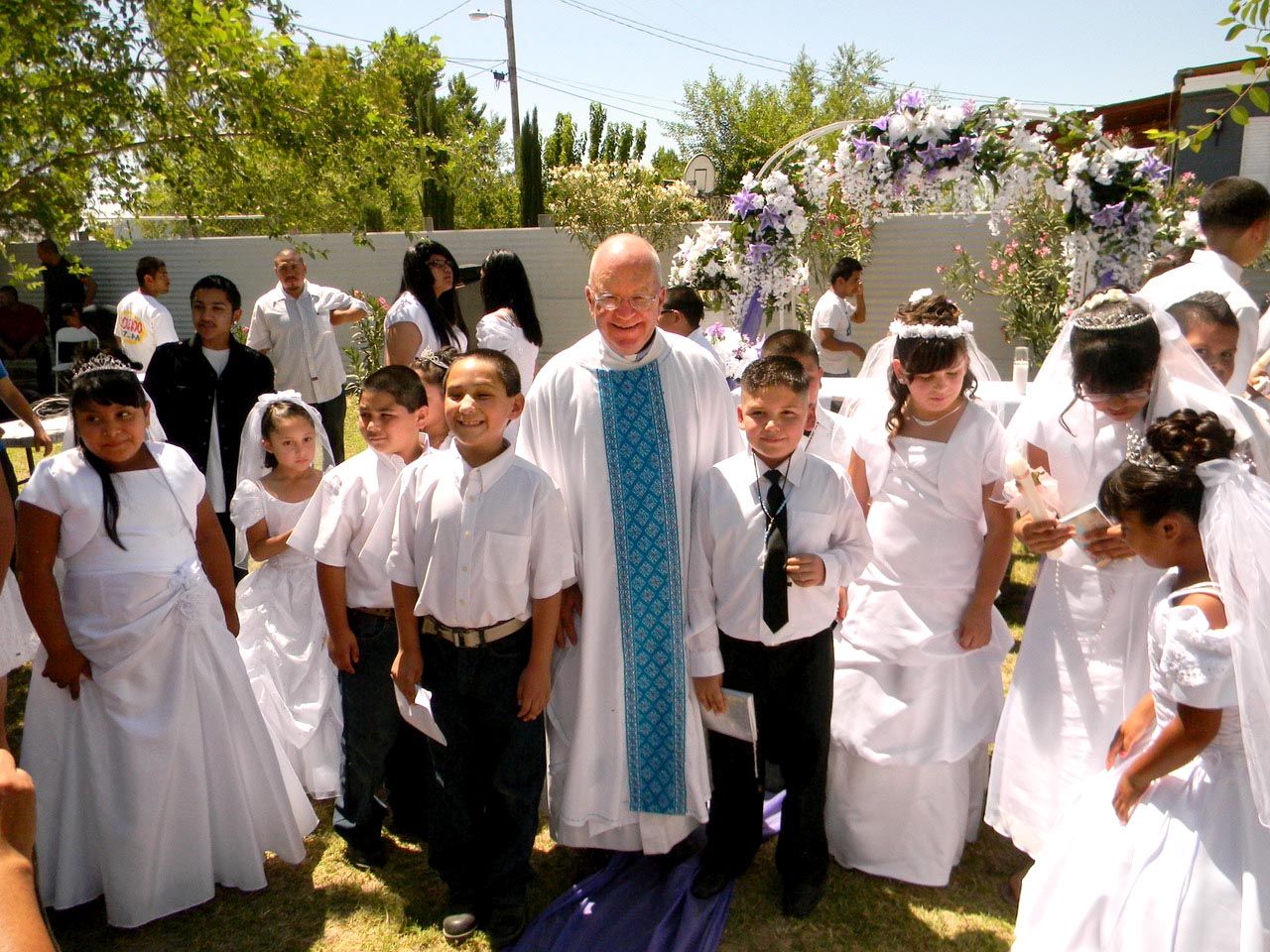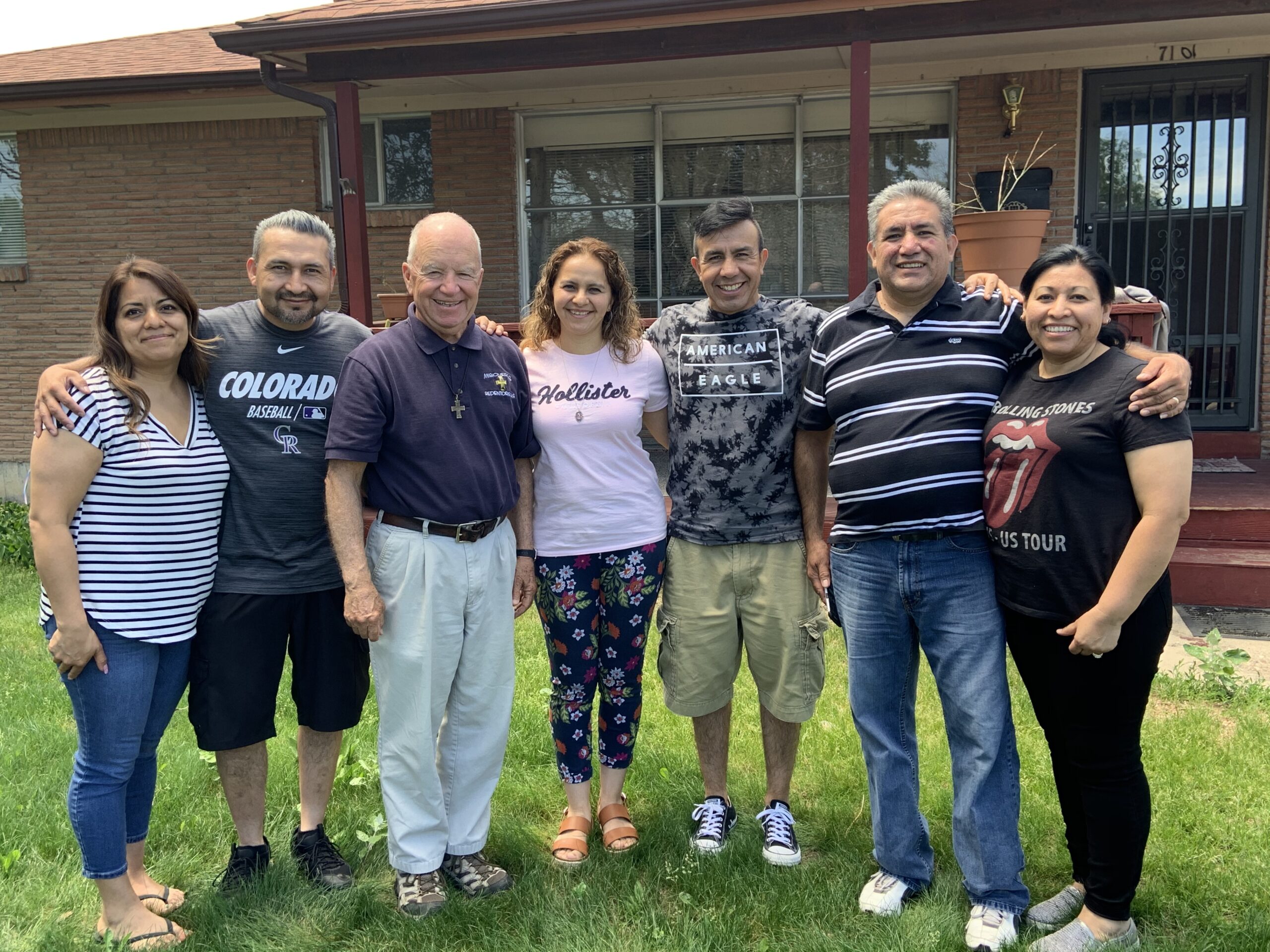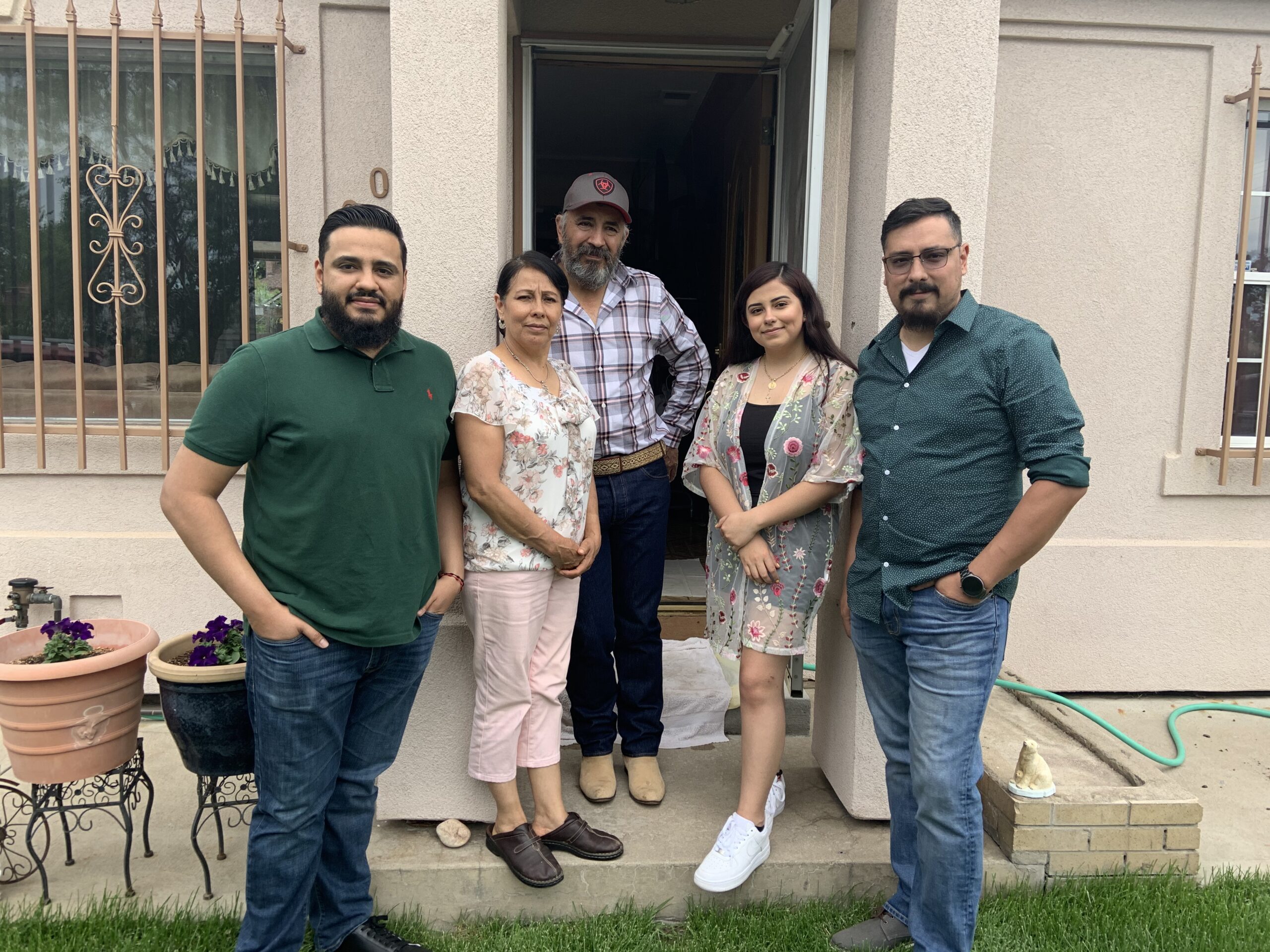Participation in the Eucharist today / Participación en la eucaristía hoy
For the next few weeks, I will offer a series of reflections on the Eucharist, as we have experienced a significant interruption in the celebration of Mass and limitation in gathering the Catholic faithful in worship. Important moments, such as weddings, funerals, graduations and anniversaries, while celebrated with Mass, there are serious limits to the celebration. There may be lessons, both encouraging and discouraging in the lives of people who because of migration, limited freedoms and poverty have not regularly been able to participate in the ordinary practices of the stable Catholic community. These reflections will be logged under “ministry”. Here are ten themes to be covered:
- Role of the Eucharist in my own personal vocation story
- Benefits of celebration of Eucharist where migrants gather
- Exposure of obstacles to reception of First Eucharis that migrants experience
- Bishop John Steinbock’s reflection at Fresno Convocation of Clergy, 2010
- “You only have the time that God gives you”
- Responsibility of the priest to make the word and the sacramental presence of Christ present for the People of God
- Remember that the sacraments of Baptism, Confirmation and Eucharist are sacraments of initiation
- Involve the parents in the sacramental preparation of children
- The place of Mystagogia, continuing education and spiritual development
- Quality migrant ministry can inspire the ordinary ministry of our communities
Durante las próximas semanas, ofreceré una serie de reflexiones sobre la Eucaristía, ya que hemos experimentado una interrupción significativa en la celebración de la Misa y una limitación en la reunión de fieles católicos en el culto. Momentos importantes, como bodas, funerales, graduaciones y aniversarios, si bien se celebran con la Misa, existen límites serios para la celebración. Puede haber lecciones, tanto alentadoras como desalentadoras, en la vida de personas que debido a la migración, las libertades limitadas y la pobreza no han podido participar regularmente en las prácticas ordinarias de la comunidad católica estable. Estas reflexiones se registrarán en “ministerio”. Aquí hay diez temas a considerar:
- Papel de la Eucaristía en mi propia historia vocacional personal
- Beneficios de la celebración de la Eucaristía donde se reúnen los migrantes
- Exposición de obstáculos a la recepción de la Primera Comunión que experimentan los migrantes
- Reflexión del obispo John Steinbock en Fresno Convocación de los Cleros, 2010
- “Solo tienes el tiempo que Dios te da”
- Responsabilidad del sacerdote de hacer presente la palabra y la presencia sacramental de Cristo para el Pueblo de Dios
- Recuerde que los sacramentos del Bautismo, la Confirmación y la Eucaristía son sacramentos de iniciación.
- Involucrar a los padres en la preparación sacramental de los niños.
- El lugar de mystagogia, educación continua y desarrollo espiritual
- Un ministerio migrante de calidad puede inspirar el ministerio ordinario de nuestras comunidades.
Privileged and preferential religious care
Pope Francis wrote: “I want to say, with regret, that the worst discrimination which the poor suffer is the lack of spiritual care. The great majority of the poor have a special openness to the faith; they need God and we must not fail to offer them his friendship, his blessing, his word, the celebration of the sacraments and a journey of growth and maturity in the faith. Our preferential option for the poor must mainly translate into a privileged and preferential religious care.” (EG 200)
Often when I speak about migrant ministry, people ask about immigration, racism, issues of poverty or injustices that migrants experience. When Francis says that the worst discrimination that the poor suffer is the lack of spiritual care, he calls on the Church to address the spiritual injustices that the poor experience before we address their social concerns. It was precisely the lack of spiritual care that a woman expressed to me. She said, “Father, we do not need you to be our lawyer or our social worker. We need you to be our priest.” She explained that many of the migrant worker families have children older than normal age for First Communion, but they are denied the sacraments when parish programs do not respond to the living situations of the migrants. Parishes offer sacramental preparation programs from September to May, but fail to take into consideration that seasonal workers do not live in one place for such a length of time.
The Church’s first obligation in justice is spiritual care for the poor. Jesus’ first miracle in the gospel of Mark was the healing of a paralytic. Several men brought a paralytic to Jesus for healing, and when they could not enter the home, they climbed up on the roof, made a hole in the roof and lowered the man in front of Jesus. Jesus said, “My son, your sins are forgiven.” He gave him spiritual care, and then he addressed his physical need.
May our love for the poor begin in offering the poor Jesus’ “friendship, his blessing, his work, the celebration of the sacraments and a journey of growth and maturity in faith.”
(Tomorrow: Eucharist and my vocation story)
Atención religiosa privilegiada y preferencial
El Papa Francisco escribió: “quiero expresar con dolor que la peor discriminación que sufren los pobres es la falta de atención espiritual. La inmensa mayoría de los pobres tiene una especial apertura a la fe; necesitan a Dios y no podemos dejar de ofrecerles su amistad, su bendición, su Palabra, la celebración de los Sacramentos y la propuesta de un camino de crecimiento y de maduración en la fe. La opción preferencial por los pobres debe traducirse principalmente en una atención religiosa privilegiada y prioritaria”. (EG 200)
A menudo, cuando hablo del ministerio migrante, la gente pregunta sobre inmigración, racismo, problemas de pobreza o injusticias que experimentan los migrantes. Cuando Francisco dice que la peor discriminación que sufren los pobres es la falta de atención espiritual, pide a la Iglesia que aborde las injusticias espirituales que experimentan los pobres antes de que abordemos sus preocupaciones sociales. Fue precisamente la falta de cuidado espiritual lo que me expresó una mujer. Ella dijo: “Padre, no necesitamos que sea nuestro abogado o nuestro trabajador social. Necesitamos que sea nuestro sacerdote”. Explicó que muchas de las familias de trabajadores migrantes tienen hijos mayores de la edad normal para la Primera Comunión, pero se les niegan los sacramentos cuando los programas parroquiales no responden a las situaciones de vida de los migrantes. Las parroquias ofrecen programas de preparación sacramental de septiembre a mayo, pero no tienen en cuenta que los trabajadores estacionales no viven en un lugar durante tanto tiempo.
La primera obligación de la Iglesia en justicia es el cuidado espiritual de los pobres. El primer milagro de Jesús en el evangelio de Marcos fue la curación de un paralítico. Varios hombres llevaron a un paralítico a Jesús para que lo sanara, y cuando no pudieron entrar a la casa, subieron al techo, hicieron un agujero en el techo y lo bajaron frente a Jesús. Jesús dijo: “Hijo, tus pecados te son perdonados”. Le brindó atención espiritual y luego abordó su necesidad física.
Que nuestro amor por los pobres comience por ofrecer al pobre “la amistad de Jesús, su bendición, su obra, la celebración de los sacramentos y un camino de crecimiento y madurez en la fe”.
(Mañana: Eucaristía y mi historia vocacional)





